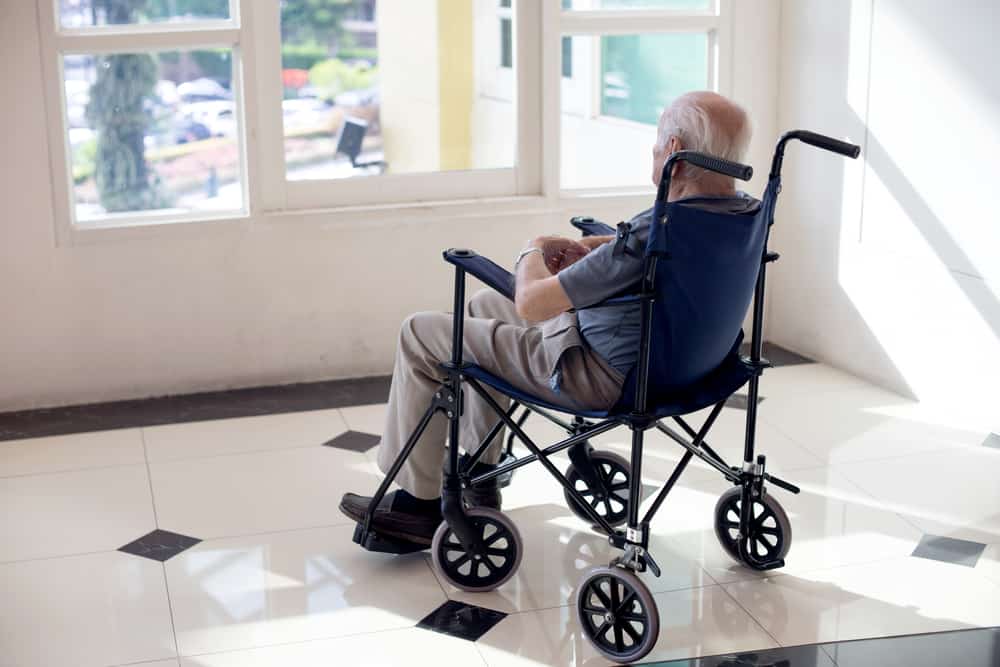Contents:
- Medical Video: Top 10 Scary and Terrifying Mental Disorder
- Get to know Diogenes syndrome in the elderly
- Signs and symptoms of Diogenes syndrome
- Risk factors for Diogenes syndrome
- Diagnosis of Diogenes syndrome
- So, how do you deal with Diogenes syndrome?
Medical Video: Top 10 Scary and Terrifying Mental Disorder
Increasing age, the elderly (elderly) are at risk of experiencing many health problems. Starting from decreased mobility, dementia, urinary incontinence (bedwetting), to withdraw from the surrounding environment. In addition to physical health problems, the elderly can also experience social and psychological problems related to the psyche. In the most extreme conditions, this disorder is called Diogenes syndrome. How is the explanation? Check out the full review below.
Get to know Diogenes syndrome in the elderly
Diogenes syndrome is a behavioral disorder characterized by extreme behavior of ignoring self-care. Sufferers tend to withdraw from the social environment, do not feel embarrassed, and have the habit of piling up their things in disarray.
Elderly people with this syndrome do not care about themselves. As a result, the house or room became very dirty, spots and smells of urine and feces scattered everywhere, until the items scattered in various corners of the room. This condition makes the elderly live in unhealthy conditions and can cause new problems such as pneumonia, frequent falls, even fires that can threaten safety.
Therefore, Diogenes syndrome is known by many other names, such as severe senility disorders, resignation syndromes, senile squalor syndrome, and messy home syndrome.
Signs and symptoms of Diogenes syndrome
Signs and symptoms of this syndrome occur over time. However, this condition is more seen in someone over the age of 60 and who has intelligence above average.
The most typical symptom is that patients tend to prefer to be alone without much interacting with other people and the surrounding environment. They often show strange behavior and turn out to be very indifferent.
The symptoms of Diogenes syndrome that are easily observed are as follows:
- A skin rash arises due to poor hygiene
- Tangle and disheveled hair
- Nails and toes tend to be long
- Body odor
- The appearance is not maintained
- There are injuries that have no known cause
- Poor nutrition or poor nutrition
- Dehydration
- The conditions of the residence are messy, dirty, and a lot of stuff or garbage
- Refuse help or help from others
Risk factors for Diogenes syndrome
Although the symptoms appear gradually and for a long time, you need to be aware of risk factors that can trigger this psychiatric syndrome. Risk factors generally lead to more traumatic feelings due to past events, such as the death of a spouse or closest family, retirement, divorce, loss of a trusted friend, and a history of substance abuse.
Some medical conditions can also be risk factors for symptoms, including:
- Dementia
- Congenital heart failure
- Obsessive-compulsive disorder (OCD)
- Vision problems
- Depression
- Loss of mobility due to arthritis or fractures
- Traumatic blows
Diagnosis of Diogenes syndrome
People with this behavioral disorder will rarely seek help or help with their illness. Because, sufferers just ignore themselves, especially to take care of those around them. Patients will also be accustomed to being left by people around, unless there is a family member or neighbor who tries to take him to the doctor to get further treatment.
This syndrome consists of two types:
- Primary diogenes syndrome, where symptoms are not triggered by a medical condition or other mental illness.
- Secondary diogenes syndrome, where symptoms appear as a result of other mental illnesses.
To diagnose the type of experience, the doctor will review the patient's behavioral and social history. Next will be a physical examination, blood screening, and brain imaging tests such as MRI or PET to identify the causes that are still possible to treat.
So, how do you deal with Diogenes syndrome?
Unfortunately, this syndrome tends to be difficult to treat in some sufferers. However, that does not mean there is no treatment that can be done to help deal with this extreme behavior disorder. The type of treatment given depends on the factors causing the sufferer to experience diogenes syndrome.If caused by anxiety, obsessive-compulsive disorder (OCD), or depression, the patient will be given certain medications to reduce these symptoms.
Some sufferers may need hospitalization or at least need a nurse to help handle it at home. However, support from family and people around is a very important weapon to help deal with the mental condition of patients with Diogenes syndrome.













